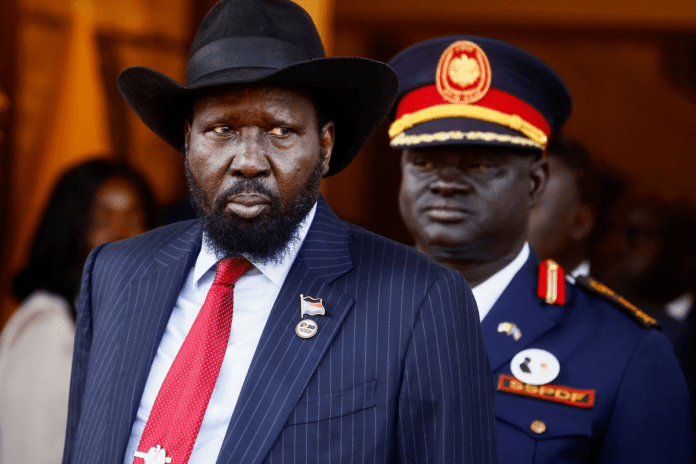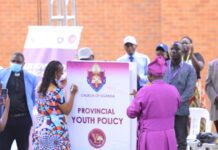The President of South Sudan, Salva Kiir, has announced significant changes in South Sudan’s government and military leadership through a series of decrees.
These changes came to light on Monday, December 9, 2024, on the national broadcaster, South Sudan Broadcasting Corporation TV (SSBC), amid heightened political and security tensions in the country.
The reshuffle includes the South Sudan People’s Defence Forces (SSPDF); General Paul Nang Majok who was appointed Chief of Defence Forces, replacing General Santino Deng Wol, who was reassigned as an undersecretary in the Ministry of Defence and Veterans Affairs.
Consequently, General Abraham Peter Manyuat became the new Inspector General of Police, succeeding General Atem Marol Biar.
The financial sector was not spared, with Johnny Ohisa Damia replacing Garang Alic as Governor of the Bank of South Sudan, while Yeni Samuel Costa was named Deputy Governor.
Justification for the Reshuffle
Kiir’s decision follows a November gun battle at General Akol Koor Kuc’s residence in Juba, which resulted in four deaths and highlighted deep political divisions.
In November 2024, a gun battle erupted at the residence of General Akol Koor Kuc in Juba, lasting over 50 minutes and resulting in the deaths of two soldiers and two civilians.
The army spokesperson attributed the incident to a “serious misunderstanding” among troops deployed at General Kuc’s home.
General Kuc, a former head of the National Security Services (NSS) and a key member of President Salva Kiir’s inner circle, was dismissed from his position and placed under house arrest last month.
These developments occur against a backdrop of regional instability and humanitarian challenges.
South Sudan faces worsening food insecurity, intercommunal violence, and the impacts of the climate crisis, with an estimated 9.4 million people requiring humanitarian aid.















